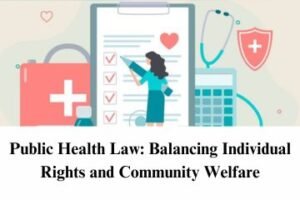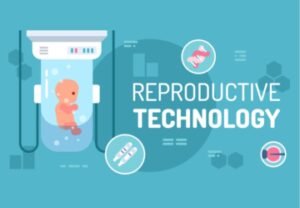IPR issues of the Internet and Social Media as an Alternate Media Platform
Written by: Ms Shalini Gupta
Introduction
Today, the internet and social media have a very great impact on our social lives. Without the internet, life is pretty difficult as it makes everything very easy. Through the internet, we can interact with our relatives or friends on social media who are very far from us, we can do online shopping, pay online bills etc.
Social media is a computer-based technology that facilitates the sharing of ideas, thoughts, and information through the building of virtual networks and communities.[1] These days mostly every people use one form of social media. Social media is a kind of entertainment for today’s generation.
Social media is not only a form of entertainment but it also provides empowerment especially to women as many women are engaged in various online businesses through YouTube or Instagram. The internet and social media have become an integral part of our lives.
IPR Issues
The increased use of the internet brought concern related to intellectual property rights (IPR) protection. The copyright law is the most effective instrument presently available for tackling the IPR issues on the Internet.[2] The Indian Copyright Act, 1957 was amended in the year 1994.
After the amendment, provisions of copyright issues over digital technology including the internet were added. After the invention of the internet, most people have started writing blogs, poems, as well as music and these works, are published over the internet so that their work can be appreciated.
The internet has opened doors to allow people to easily copy and reproduce your material without permission.[3] The public use that information for their own purpose without asking the owner of the work. This creates the issue of copyright over the internet. On social media also, people share their ideas, blogs and other creative ideas but the viewers use them according to them. Not only copyright but patents and trademarks are also at risk on the internet.
Article 13 of the new EU Copyright Directive which has been passed by the European Council states that “online content sharing service providers and right holders shall cooperate in good faith in order to ensure that unauthorised protected works or other subject-matter are not available on their services.”[4] This statement means no online work can be copied. India should also make such laws and keep checking over the activities of the users so that no infringement can take place on the internet.
Social Media as an Alternate Media
It is not important that everyone’s opinion will be the same. Everyone’s opinion differs. Everyone has the right to express their views and expressions under Article 19(1)(a) of the Indian Constitution. The liberty of the press is also implicit. One can express their views through media as well.
Today, social media acts as a medium through which many people express their views. Many information like the news we came to know from social media only. We know that there are various disagreements on political views. When people share their opinion through social media, there are many disagreements over there. Many people start debating on a particular topic on social media.
There are many electoral campaigns running on social media. The services on social media allow users to engage in social media activities such as sharing and commenting on digital content, creating personas and profiles, socializing and quickly communicating across networks of strong and weak social ties.[5] Social media can be called alternate media. The purpose of the media is to present the fact of any news or to deliver the information to the viewers.
Today, social media is also presenting the information or fact of any news to social media users. Traditional media mainly refers to television, radio and newspapers but these days, social media can be called modern media. If people are not watching television or listening to the radio but they are using social media, they can know all the information going around. Social media is offering the means for democratic communication to people who are normally excluded from media production.
Conclusion
Alternative media are defined as small-scale politically radical media, using a wide spectrum of communication technologies and formats. In terms of expressing one’s views, social media is one of the most important platforms. If people use the internet and social media for a good purpose, then it can be called the most helpful thing for the people. But if we use it for a bad purpose, it can be worse.
References
[1] Maya E. Dollarhide, Social media definition, INVESTOPEDIA, https://www.investopedia.com/terms/s/social-media.asp#:~:text=By%20design%2C%20social%20media%20is,often%20utilizing%20it%20for%20messaging.
[2] Artee Agarwal, Usage of Internet and the evolving challenges of IPR issues in India: A review, IJBEMR (Mar 2015), http://ijbemr.com/wp-content/uploads/2015/04/Usage-of-Internet-and-the-Evolving-Challenges-of-IPR-issues-in-india.pdf.
[3] The effects of the internet on intellectual property rights, PETERSONWATTS (Mar 29, 2017), https://www.petersonwatts.com/blog/2017/03/the-effects-of-the-internet-on-intellectual-property-rights/.
[4] Yiannos Georgiades, IP issues on the internet, LAWYER-MONTHLY, https://www.lawyer-monthly.com/2019/04/ip-issues-on-the-internet/.
[5] Robert Gehl, the case for alternative social media, RESEARCHGATE (Oct 15, 2020), https://www.researchgate.net/publication/282836538_The_Case_for_Alternative_Social_Media.




